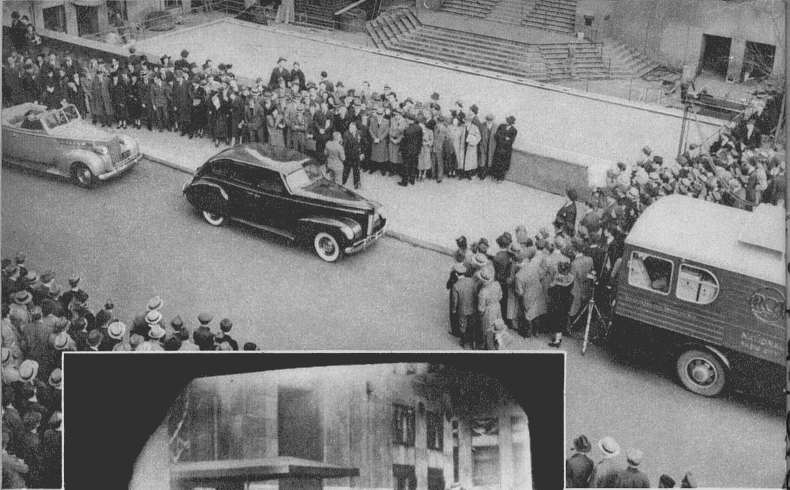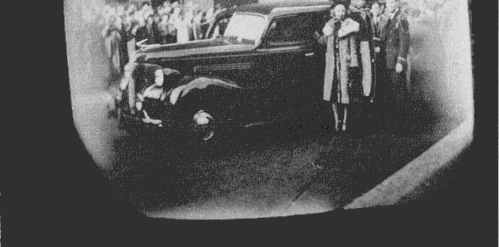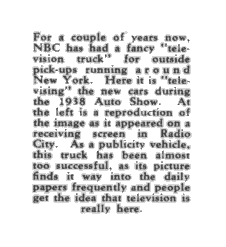fact that the Empire State television station has been on and off the air now for eight years, and television receivers of one sort or another have been available for the same period at prices less than $500. In other words, the proposed television was only a resumption of a service started eight years ago!
Why then, was so much importance given Sarnoff's announcement, and the publicity fireworks set off? There are individuals who insist that this publicity was deliberately stirred up. The possibilities boil down to three:
First, New York is having a World's Fair. The World's Fair wants publicity and RCA wants publicity. Television is a romantic subject, and any announcement concerning its progress is inclined to echo and re-echo | in the public prints. Grover Whalen, head of the World's Fair, is a master publicist and it is significant that recent pictures show him seated at a desk with Sarnoff signing an agreement for RCA space at the Fair Grounds, while the act of the signing was being televised.
A gossipy little business paper, Space and Time, in New York, has another explanation. It points out that RCA has had several brushes with the Federal Government. Says Space and Time: "David Sarnoff came from a (Washington) meeting, having dropped concessions behind he'd rather not have left."
The problem was television. No one could easily prove in a court of law there has been a hold-back in television. But England and Germany have long since had their television. Yet even the U. S. experimental programs
|



